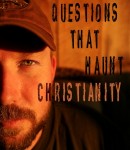Neal DeRoo, co-convener of a conference at which I am presenting a paper (which is sure to bring Peter Rollins to his academic knees*), writes at Church and Pomo about what elicited this conference:
“Culture” is an amorphous, vague thing that is next to impossible to pin-down. It is only slightly better than a child’s sense of “they”: “But mom, if I do that, they will laugh at me.” Similarly, Christians tend to make a lot of our decisions based on what “culture” will do: “This culture is going to hell in a hand basket and that’s why God is punishing it” or “We have to do this to keep the Church relevant to our culture.” Both the idea that the Church can avoid culture, can hide from it somehow, and the seemingly opposite idea that the Church must engage with culture share a common problem: in both cases, Christians assume a certain distance between the Church and this thing called ‘culture.’
But the Church is not distinct from culture. It is thoroughly infused with cultural products, artifacts and institutions. The Church, any church, requires human interaction, and therefore requires using the products of previous human interactions: language, customs (as simple as a hand-shake or a smile as a greeting and as complex as guidelines for institutional decision-making), reference points (we’ve got to talk about something), and so on. As Christians, we should not call for the Church to engage culture, but rather to engage culture better, which means, in part, to be more self-aware of the ways in which it has always already been engaged by culture, by what Michel de Certeau calls the “practices of everyday life.”
While we tend to think of “popular culture” as referring only to the entertainment industry (films, TV, music, video games, and so on), it more accurately refers to all those cultural elements that are popular because they shape the lives of so many people. While TV shows or movies may be a part of that shaping, formative process, so, too, are our customs regarding food (what we eat, how we eat it, and how we produce it), fashion (what we actually wear, not just what some guy in France thinks we ought [or haute?] to wear), and functionality (what technology does for us, what it doesn’t do, and how we decide on that). As Christians whose lives are thoroughly enculturated, we have not avoided culture so much as we have evaded dealing with it directly and purposively.
Read the rest: Conference: The Christian Evasion of Popular Culture : the church and postmodern culture.
*And if that doesn’t do it, I’m taking Pete pheasant hunting the next day. That will surely cause him to starting praying again.
















